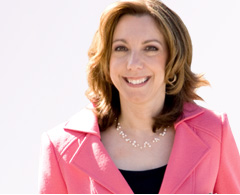Our Favorite Marilyn Blog Posts

Is It Time to Give Up Coffee?
Not all bladders are created equal. Some are robust while others spasm from the sound of coffee brewing. Why do some women have overactive bladders and leak while others don’t? And what sets off a sensitive bladder?
To answer these questions, I sought out the advice of Urogynecogist Robert A. Starr, MD,Professor and Chairman of Urology at Oakland University William Beaumont School of Medicine in Rochester, Michigan.
Why do certain types of food and drink cause some women to experience bladder leakage but not others?
Dr. Starr explained that no one knows for certain. "In general urine is a toxic substance, and the bladder has to protect itself," he said. "If the bladder has any breakdown of that protection—for example, if you have a bladder infection and have horrible urgency, frequency, and burning—it’s really the urine that’s stimulating the nerves that's creating all that."
Some women seem to have a more protected or robust bladder than those who are more sensitive to certain foods and drink. Exposing the bladder to caffeine, alcohol, chocolate, citrus, spicy or tomato-based foods can cause a sensitive bladder to spasm, causing a strong urge to go and leaking.
How much coffee is too much?
There seems to be no rule of thumb as to how much is too much. Some women are ultra-sensitive to one cup of coffee and some might drink a whole pot and not be bothered at all.
When Dr. Starr asks his patients to stop drinking coffee or to cut back, they sometimes become defensive. Some even ask him, "Well, do YOU drink coffee?” He puts it in the perspective of “if you play, you pay."
"When it comes to LBL, caffeine is one of the worst culprits because of the sensitivity to the nerve endings in the bladder," Dr. Starr said, "It also acts as a diuretic, which causes you to make more urine and have a more irritable bladder."
When women complain of severe bladder irritability and leakage, Dr. Starr has them start a daily voiding diary to keep track of how often and how much they’re leaking and using the bathroom. By using a voiding diary, you may discover that in the morning you're going to the bathroom frequently and maybe experiencing some leaking, but as the day goes on it gets further apart. And by the time you go to bed at night, you sleep through the night. If that’s the case, Dr. Starr takes an objective look and asks, "What do you do in the morning?" More often than not, women say that they drink coffee.
Can giving up coffee completely stop LBL?
Dr. Starr says, "Absolutely, I see it all the time. Though, it usually takes quite a while to convince someone to do that. For many, when they stop drinking caffeine they get headaches and just don’t feel good." He suggests weaning off slowly by drinking half decaffeinated and half regular coffee at first. Then drink just decaf, and eventually no coffee at all because even decaf can aggravate the bladder.
How can you know for certain that caffeine is contributing to LBL?
Dr. Start suggests going cold turkey for three or four days, as you should see a difference in that time period. If you see no difference, go ahead and drink coffee.
Coffee isn't the only caffeinated beverage that causes problems. There are a lot of energy drinks on the market right now that are loaded with caffeine. Dr. Starr says those drinks are as bad or worse than drinking coffee.
"If LBL is caffeine driven, I cannot fix it when patients aren't participating in their care," said Dr. Starr. If caffeine contributes to your LBL it comes down to your willingness to help yourself and make the necessary behavioral changes.
What’s the best replacement for caffeinated drinks?
Of all the drink options women have, water is the best choice. Even so, a common mistake women make is drinking too much water. "The amount of water you need depends on what you expend," Dr. Starr said, "If you’re working-out and sweating, you’ll need more water. Thirst is designed to be here for you so you don’t get too dehydrated. If you drink beyond your thirst and you have an overactive bladder, it’s going to make it worse."
For those of you who want more variety than plain water, I asked Dr. Starr for other options. Out of the juices, he says apple juice is a good choice as its less reactive to a sensitive bladder than more acidic choices like orange and pineapple juice. If you MUST drink soda, Dr. Starr considers clear soda that is caffeine-free a better option than drinking a soda with caffeine.
What about you? How do you keep a sensitive bladder in check? Share your thoughts on Marilyn’s blog page at Poise.com
Next Blog Post: 3 Ways to Start the LBL Conversation with Girlfriends »



